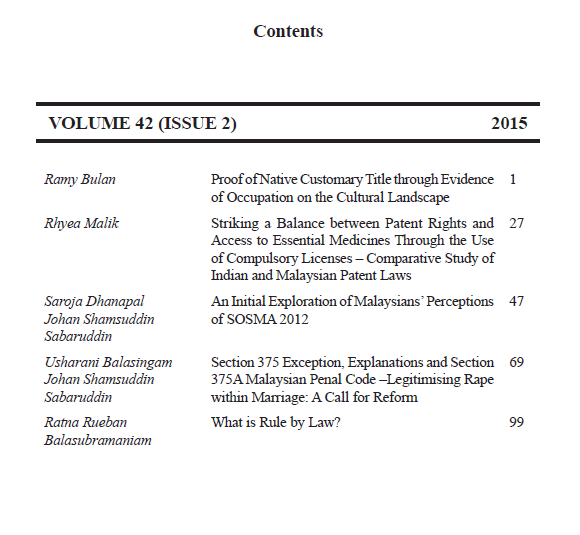Striking a Balance between Patent Rights and Access to Essential Medicines Through the Use of Compulsory Licenses
Keywords:
balance, patent, rights, essential, medicines, compulsory, licenceAbstract
In view of the exorbitant prices charged by pharmaceutical companies as patent monopolists, the economically underprivileged, mostly residents of developing countries, are regularly denied access to essential medicines in as much as the medicines are largely beyond their means. ‘Compulsory Licenses’ are one of the means for bridging the gap between the high charges imposed by pharmaceutical patent monopolists and the affordability of the economically underprivileged patients. In the pharmaceutical sector, ‘compulsory licenses’ can be employed by the government to allow generic pharmaceutical companies to produce and sell the patented essential medicines at a fraction of the price being charged by the pharmaceutical monopolists for meeting its twin objectives of ensuring accessibility and affordability of essential medicines for all. In this article, benefits and criticisms of compulsory licenses in the backdrop of the comparative breadth and depth of the Indian and the Malaysian provisions for compulsory licenses have been examined.



